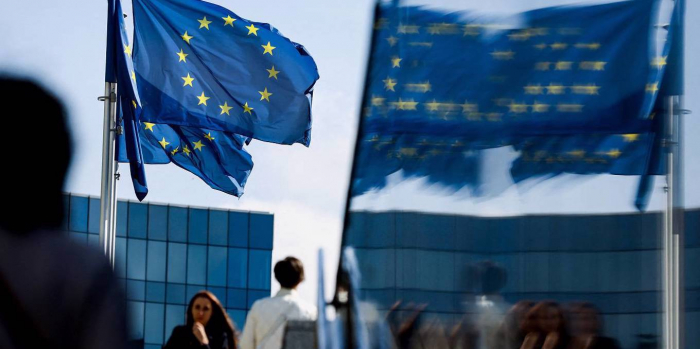Instead of ushering in the “perpetual peace” Europeans had anticipated, the end of the Cold War gave rise to a multipolar world marked by the escalating rivalry between the United States and China. To survive and assert their influence on the global stage, European countries must bolster their military deterrence capabilities.
Russian President Vladimir Putin’s invasion of Ukraine has plunged Europe back into the darker chapters of its history. Once again, the continent confronts the specter of its most terrible affliction: a large-scale war of conquest.
After decades of relative peace and stability, the prospect of European borders being redrawn by force and sovereign states being wiped out has suddenly become palpable. With Russia having chosen aggression over peaceful collaboration, it is increasingly evident that the Ukrainians are fighting for Europe’s freedom as well as their own.
History has a way of correcting misunderstandings and delusions. After the Berlin Wall fell in 1989, heralding the end of the Cold War, a newfound sense of optimism animated Europe. The Brandenburg Gate reopened, the Red Army withdrew from Warsaw Pact countries, and the Soviet Union disintegrated. The “end of history” was nigh, and Immanuel Kant’s utopian vision of “perpetual peace” seemed within reach.
Europeans – especially the Germans, buoyed by post-reunification euphoria – clung to this illusion until very recently. Alas, things turned out differently. Rather than achieving perpetual peace, the collapse of the Cold War’s bipolar order gave rise to a multipolar world dominated by various continental and sub-continental powers and marked by the escalating rivalry between the twenty-first century’s two superpowers: the United States and China.
Since he came to power in 1999, Putin has sought to reverse the outcome of the Cold War and restore Russia’s status as a superpower, primarily through military means. To this end, Putin’s Russia has turned its back on the post-1989 European consensus and attempted to revert to the norms of a bygone era.
The geopolitical realignment over the past two decades has coincided with the digital revolution. While the US and China spearhead radical technological change, Europe lags far behind. Given its geopolitical, economic, and security vulnerabilities, the outlook for Europe already seemed bleak before it faced the renewed threat of war on its territory.
Given the threat posed by Russia’s expansionist ambitions, European countries must work toward greater political and military unity. Yet, despite the lessons of two World Wars and a decades-long Cold War, true European unification and shared sovereignty remain elusive, owing to the continent’s linguistic and cultural diversity. As Putin’s military aggression rages on in Ukraine, the pull of national identity in Europe evidently outweighs the fear of external threats, whether from Russia or from renewed US isolationism and heightened rivalry with China if Donald Trump returns to the White House after next year’s presidential election.
Until it achieves true unification, however, Europe will not be able to regain its status as a great power in the twenty-first century’s multipolar world. In a global landscape dominated by superpowers, Europe risks remaining dependent on its alliance with the US, positioning itself as a subordinate junior partner rather than a genuinely sovereign entity.
But the question remains: Does Europe still have the confidence required to play a prominent role on the global stage? To rise to the occasion, European countries must overcome significant hurdles and bolster their political and military capacities. Putin’s war in Ukraine marks a watershed moment for this century’s ever-shifting global order and for Europe’s position within it.
Given the risks posed by another Trump presidency and America’s shifting geopolitical focus toward the Pacific, European policymakers must take measures to ensure Europe’s survival even if the US is no longer able or willing to serve as the continent’s shield. Otherwise, Europeans could find themselves living perpetually under the threat of Russian aggression, bending to the Kremlin’s every whim.
To mitigate this risk, Europe’s primary objective should be to bolster its military deterrence capabilities on land, at sea, and in the air. Given Ukraine’s experience, this task must take precedence over the consolidation of public finances or the introduction of new social programs. Domestic measures, no matter how desirable, would have to wait.
Security is only one of three monumental structural challenges Europe currently faces. In addition to the resurgence of geopolitical tensions and the return of war to the continent, Europe must adapt to the accelerating shift toward artificial intelligence and the clean-energy transition. Tackling these challenges requires bold, transformative measures that would fundamentally reshape our world.
Europe, with its internal heterogeneity, has often been unwilling or unable to engage in power politics. But this moment offers an unexpected and unparalleled opportunity to play an influential global role. National particularism is a luxury Europe can no longer afford.
Joschka Fischer, Germany’s foreign minister and vice chancellor from 1998 to 2005, was a leader of the German Green Party for almost 20 years.
More about:
















































